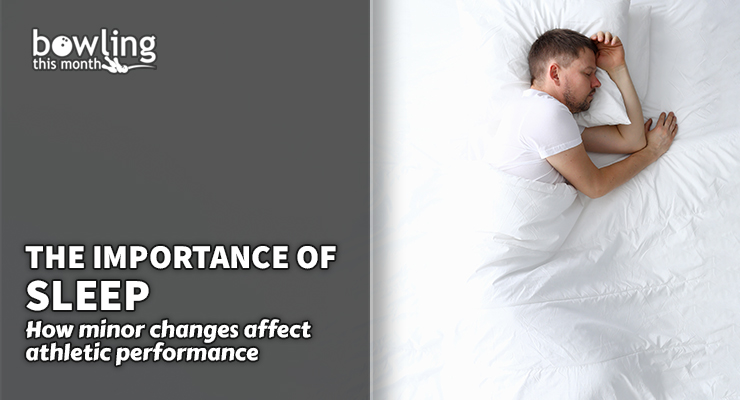Article Contents
- 1. Can sleep improve performance?
- 2. Can a short sleep intervention improve performance?
- 3. Athletes need more sleep
- 3.1. The power of the nap
- 4. Recommendations to improve sleep quality
- 5. Recommendations for sleep leading up to an important tournament
- 6. Conclusion
- 7. References
Note: This article is only available to Bowling This Month subscribers.
Over a decade ago in the August 2009 issue of Bowling This Month, I wrote The Secret Weapon of Champions, which discussed how sleep can maximize performance. The power of sleep to enhance performance can’t be overstated. Sleep became one of the foundations of the six-week tournament peaking model I developed.
Those who are serious about maximizing performance take sleep seriously. To illustrate, Michaels Phelps, one of the greatest Olympic athletes of all time, tracked sleep data on a daily basis, including how many hours he got, the quality, and the amount of REM sleep. Tom Brady gets nine to 10 hours of sleep per night, considering it one of his secrets to the longevity of his elite performance.
“I firmly believe that sleep and recovery are critical aspects of an effective and holistic training program.”
-Tom Brady (NFL great)
Yet, this is a commitment that is not as prevalent in bowling as it should be for those who want to improve their performance. In an effort to encourage increased sleep for those who want to perform at their absolute best, I return to the topic of how sleep can enhance performance to review updated findings and to share insights into how sleep can help you to reach a higher level of performance.
Can sleep improve performance?
Overall, sport science research into the power of sleep has emerged as a vital domain to ensure elite athletes maximize their potential. Sleep amounts are linked to illness and injury rates in athletes, and sleep is critical for both recovery and performance (Lee at al, 2016).
“I really can’t say it enough. I don’t think people really pay enough attention to how important sleep is.”
-Michael Phelps (28 Olympic medals, including 23 gold medals)
Sports performance sleep research was awakened significantly with the research of Dr. Cheri Mah and colleagues in the late 2000s. At Stanford, Dr. Mah studied the effect of extra sleep for a prolonged period on student-athletes. In her most famous study, after baseline performance assessments on shooting and ...
Already a premium member? Click here to log in.


